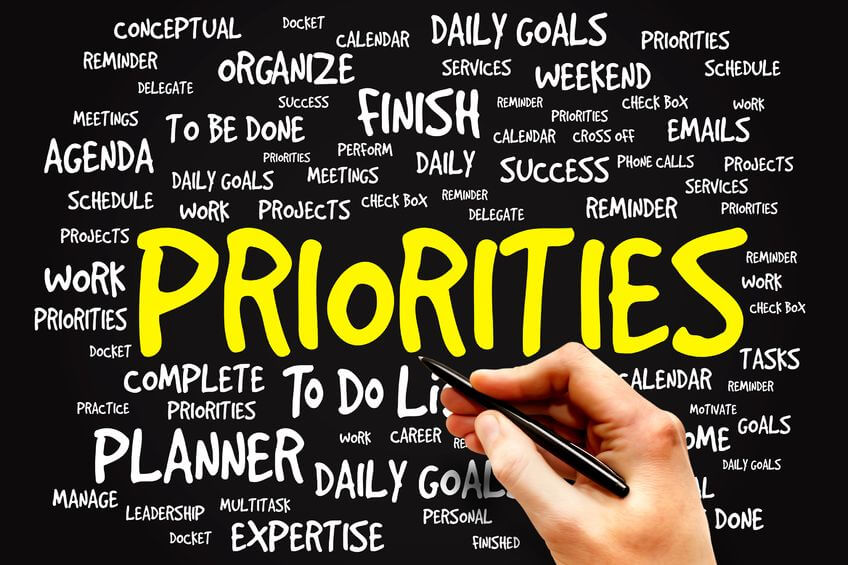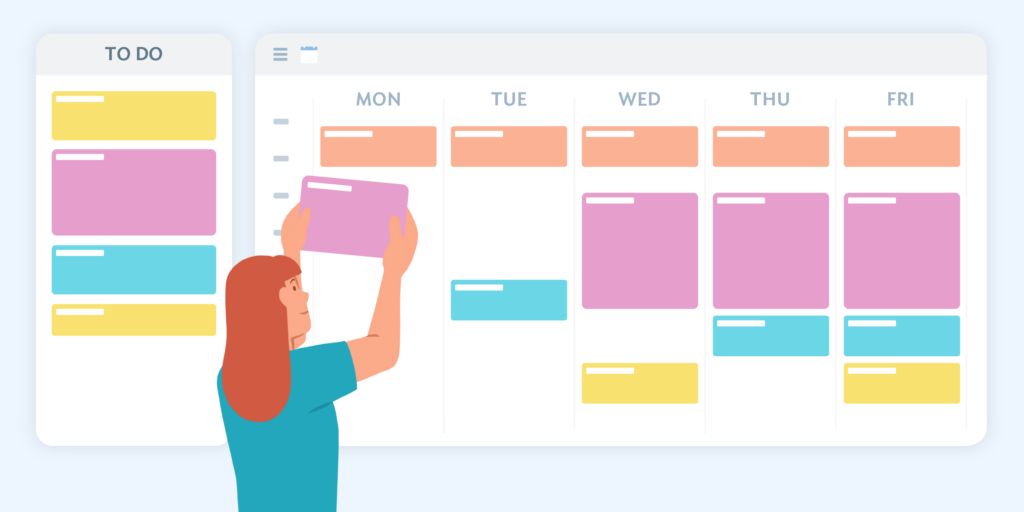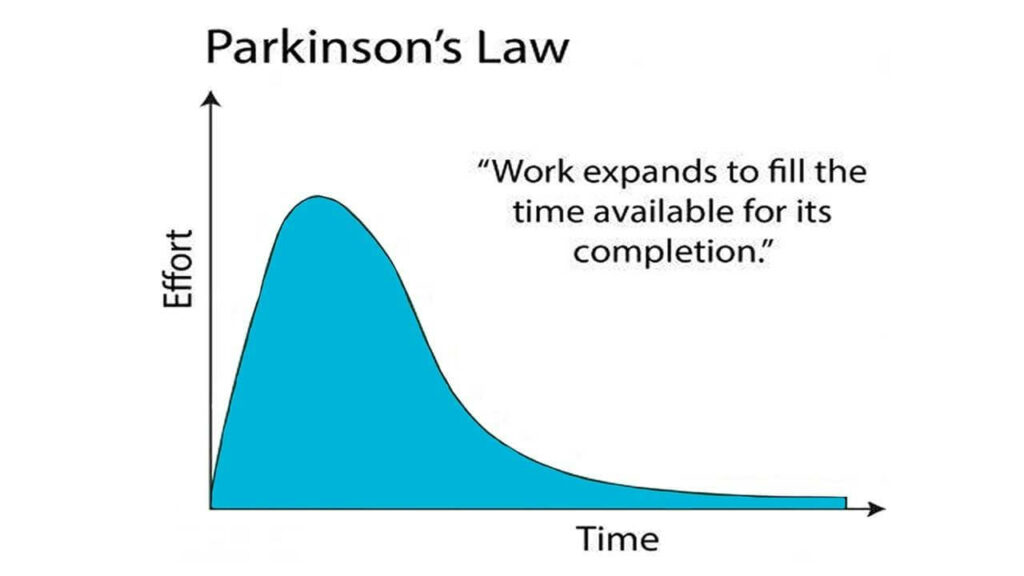People often face the untimely completion of planned activities, lack of efficiency and motivation, and inability to manage time properly. Sometimes, you determine the work to be done at the beginning of the day, but after a while, you become distracted and turn to other activities. Over the past years, I have read many books and articles about productivity and time management. There are specific tips that I genuinely use to help make my time management more efficient. In this article, I am going to share seven beneficial tips about time management and productivity.
1. We own our time

The most basic principle to be accepted about time is that we absolutely own all of our time. Once you fully grasp this principle, your understanding of time will change completely. When I first realised this, my life genuinely changed. Because I used to think I don’t have time to do stuff. The main idea behind “I don’t have time” is “I don’t want to spend time on it”.
In one of the articles I read about efficiency, there was a quote, “At any given moment, you are doing what you most want to be doing.” This statement was very empowering for me because it helped me realise that my time is entirely within my control. In brief, you choose your time and the work that you want or will do.
For instance, you are reading this article because you wanted to take time for this article. Or you prefer to watch a movie even though you have a lot of work to do because you want to spend your time on it. The point here is that the management of your time is entirely yours. Regardless of the conditions and circumstances, you have enough time for everything you plan in 24 hours, but in between, you spend your time only on those that are a priority for you.
2. Yes, or No?

When we are young, and we don’t have many opportunities in our life, we say YES to the majority of things that are coming our way. But as soon as we get to a point where we are starting to get more inbound leads than we have time available, we start operating with a hell yes or no maxim.
One of the main problems that many people face when it comes to time management is not using the “yes” and “no” at the right times. No matter how many plans we make during the day, external tasks can always take us beyond our goals. The key here is to respond to these tasks or interventions according to our timing position.
For example, you are doing an important job, you are focused, but your friend asks you, “Hello, can you help me with this?” by sending an email or message. Given the work you are doing, if accepting that request will lead to a change in your plans (late completion of the job, failure in other tasks, etc.), you need to be able to say NO.
Since their young period, people tend to do everything to be more active and step up the ladder of success. As a result, when they reach the desired point in a few years, they start to have productivity and time management difficulties. So, saying YES or NO is another fundamental principle of time management.
3. Daily “Highlights” or Priorities

The next tip is called the daily highlights or priorities. The idea is that there is always one priority that we need to get done today among all the tasks to be done. This is something that will make us feel more comfortable when we finish. If you have the desire to do priority work, if you enjoy doing the work, then you will be more effective in time management and will be more productive during the day. Therefore, identifying the most important things for you before making a plan during the day will also help you manage your time effectively.
But if I have a day where I don’t set my daily highlight, I create a to-do list. And it’s a lot harder to get stuff done. On days where I have the daily highlight that I’m focusing on, this is the most urgent, satisfying, or fun thing I have to do today.
4. Having a to-do list as a productivity tool

Tip number four for time management is to use a to-do list. If you determine your tasks at the beginning of the day or the night before the day, you will save more time to focus on what you have to do. Of course, it is not necessary to complete all the stuff on the to-do list, so when dividing the work, you can prioritise the task that you will enjoy doing by mentioning it at the top.
The main idea here is not to write things on the to-do list but the results we get when we do them. Our brain receives millions of pieces of information in a day, and we get tired of processing them. The longer and more continuous this information is, the more the brain focuses on other areas losing its attention. Therefore, when we work long hours without a break, our motivation decreases, our attention is distracted, and we do not want to complete the work. Instead, we can always keep our focus by dividing the work into parts. Regardless of the method you use to complete the task, drawing a line over the completed tasks causes dopamine secretion in our brain. As a result, we enjoy getting the job done, and the more work we do, the more productive we become.
Once I figure out what my daily highlight is, I make a list of the other stuff that I have to do that day in my bullet-point notebook and an app called “Things.” I make a list, and then I tick them off or cross them off with a physical pen as I go throughout my day. It doesn’t matter what system you use for your to-do list.
But again, there’s a general principle of productivity: our brain is for having ideas, not for holding them. A big part of why we can’t manage our tasks properly when it comes to managing our time and productivity is that we haven’t written them down.
5. Time-Blocking concept as a time management tool

The following principle of time management is the concept of time blocking. The basic idea is that everyone, regardless of identity or position, should arrange their days, weeks, or months on the calendar. But the more time you spend managing the productivity system, the less time you spend getting stuff done. And then it’s just all completely pointless.
Sometimes we see in movies or video sources that business people, company executives, managers use calendar apps (Google Calendar, Apple calendar, etc.) or physical notebooks to schedule appointments, business hours, and entertainment.
You may be interested in this article:
In fact, you do not need to have a higher position or tons of responsibilities to have such a system. Even if you don’t have a lot of work to do during the day, setting aside time for each task will increase your productivity even more. In this way, you will make decisions not spontaneously but by realising the value of your time. You can also share calendar schedules with other people, so they can choose a time on their calendar that suits them when they want to meet you or try to do something.
The time block should also be aligned with the to-do list. For example, as an author, I need an hour to prepare this article and at least 2 hours to make it into a video. Therefore, I block a specific time interval for this work (21:00-22: 00) by choosing the time that suits me. This means I will only deal with this task during the assigned time slot. If you have a daily routine, you can automate it by scheduling it in your calendar.
6. Parkinson’s Law

When it comes to productivity and time management, you’ll find Parkinson’s Law in all the sources you can come across. Cyril Northcote first used Parkinson’s Law as the first sentence of a 1955 article by Parkinson in The Economist:
The work expands to fill the time that we allocated to it.
Cyril Northcote – The ECONOMIST (1955)
That is being said, if I give myself three hours to prepare this text, inevitably, it will take three hours. Whereas, if I only give myself an hour to prepare this text and fill my day up with other tasks, I will get the test done within an hour and focus on our other task. Thus, when this principle is applied, it is possible to be more productive by completing the work in a short time.
So, it is about creating artificial deadlines for ourselves. The basic idea is that creating an artificial deadline to do a job increases your productivity and makes your work more efficient. Your brain already knows that you don’t have left any additional time to do it. It may sometimes not be possible to apply a deadline to all tasks, as many side factors can affect the work process. In this case, the work may be delayed, and the deadline may pass. In this case, a new deadline must be determined, and the process must continue accordingly.
7. Reserved or protected time

Time management and productivity play an important role in people’s lives. But we are not robots; weare emotional beings. No matter how much time we spend trying to get what we want, we should also make time for fun and relaxation. This is important for both physical and mental health.
When setting a time slot for activities on your to-do list, you should also think about leisure time. For example, you want to write a blog post as a hobby, or you have a topic that you have been researching for a long time, and you can mark it as a time to spend on your calendar. It will also prevent you from getting mentally exhausted during the day.
Finally, one of the most critical issues is self-satisfaction when it comes to time management and productivity. No matter what you do during the day, you need to stay positive and keep your motivation high, even if you can’t do it on time. In this case, you will have a healthy competition with yourself. Decreasing your motivation can also reduce your efficiency and time management skills.

